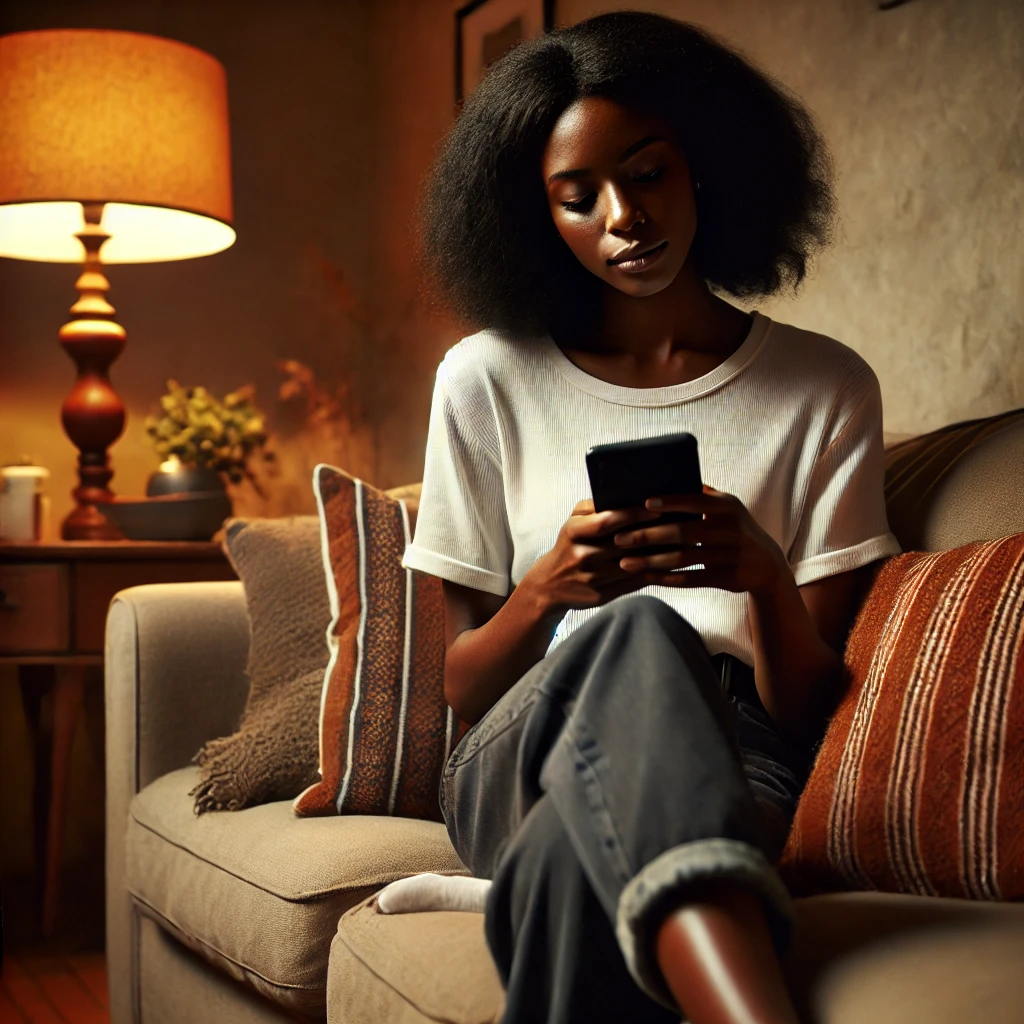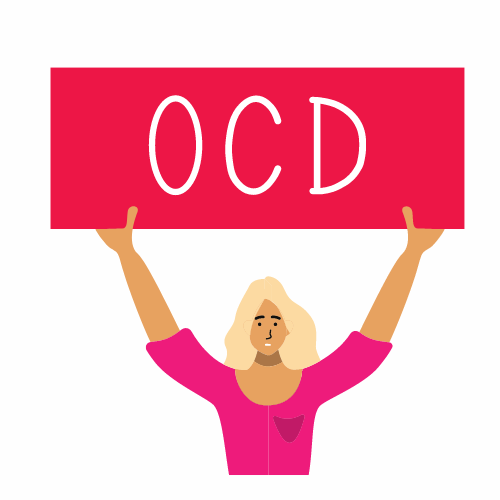ADHD and Social Media: Tips for ADHD Women to Reclaim Focus
Introduction: The ADHD and Social Media Cycle
ADHD and social media are a constant topic in my sessions with women clients. Do you wonder if you have a healthy relationship with social media? Maybe you lose track of time while scrolling through Instagram or TikTok. You get excited about checking your feed but end up feeling worse afterward. Does that sound familiar?

You aren’t alone. A 2021 study found that women with ADHD spend an average of 3.5 hours daily on social media – a full hour more than their neurotypical counterparts.
Social media offers endless entertainment and great connection with community, but it can also lead to increased anxiety, depression, and dissatisfaction. For women with ADHD, this is incredibly challenging. The ADHD brain craves excitement and stimulation, and social media provides an instant hit of dopamine that is hard to resist.
If you're feeling stressed, you might find yourself reaching for your phone to scroll as a way to escape. You may even think about when you can recheck it or feel irritated when you can't access it. Sometimes, it can even feel like you can't stop, almost like an addiction.
Emotional Dysregulation and Social Comparison: How Social Media Triggers ADHD Symptoms
ADHD makes women more prone to emotional dysregulation, which means it can be hard to manage stress from work, family, and relationships. Social media often feels like a quick fix for these emotions, but it can worsen things.
Apps like TikTok and Instagram are filled with curated, picture-perfect versions of life. These images fuel social comparisons, leaving you feeling like you don’t measure up. When you see idealized images of other women's bodies, homes, and lifestyles, it triggers feelings of inadequacy and anxiety.
Research shows that for ADHD women, this can create a vicious cycle of negative emotions and compulsive checking behaviors. Women are especially prone to perfectionism, which is also triggered by social media. You go online seeking connection, but you also expose yourself to more negativity without realizing it.
Impulse Shopping and ADHD: A Hidden Trap
Social media’s emotional impact extends beyond mood—it hits your wallet, too. For ADHD women, the link between emotional dysregulation and impulse buying is particularly problematic. With features like TikTok Shop or Instagram’s shopping tab, it’s easy to make impulse purchases. If your credit card is already stored in the app, you might buy something on a whim, only to regret it later.
Impulse shopping is particularly challenging for women with ADHD, as impulsivity is a core symptom. The rush of making a purchase feels good but often leads to frustration later on. To avoid this, remove your stored payment information from these platforms. Additionally, pledge to wait at least 24 hours before buying something you see online. This simple rule gives you time to reflect on whether you need the item or it's just an impulsive desire.
Body Image and ADHD: The Harmful Influence
Research has shown that visual platforms like Instagram and TikTok can lead to body dissatisfaction, especially among women. This is even more problematic for ADHD women, who are at a higher risk for disordered eating patterns. Constant exposure to filtered and edited images can worsen body image issues and potentially trigger unhealthy behaviors around food and appearance.
The Dopamine Trap
Social media is designed to keep you engaged by tapping into your brain’s dopamine system. Every like, comment, or notification gives you a small dopamine boost, making you want to keep checking your phone. For ADHD brains, which naturally seek out dopamine, this can be especially hard to resist.
Over time, you may find that you need to engage more frequently to get the same feeling of satisfaction. This dopamine-driven cycle makes it difficult to limit your social media use, even if you know it affects your mental health. The addictive nature of these platforms can also worsen emotional dysregulation and contribute to feelings of anxiety and depression.
Multitasking and Overstimulation: How Social Media Hijacks Your Focus
Do you often find yourself juggling multiple tasks while on social media? Are you messaging friends, scrolling through your feed, and replying to notifications while trying to finish work or chores? This kind of multitasking can overwhelm your brain’s executive functions, making it harder to focus on any one thing.
For women with ADHD, this overstimulation is especially harmful. You might find yourself slipping into hyperfocus, where hours pass while you’re deeply absorbed in social media. This mental overload makes managing time and staying on top of daily tasks even harder.
Practical Tips to Reclaim Your Focus: Breaking Free from the Cycle
Breaking the cycle of social media overuse isn’t easy, but these ADHD-friendly strategies can help you regain control:
- Identify Your Social Media Goals: Write down what you want to achieve. Are you trying to spend less time online or limit yourself to specific apps? Having clear goals keeps you accountable. Make sure these goals are visible and revisit them daily so you do not forget them.
- Create a Social Media Space: Set up a designated spot where you engage with social media, like a specific chair or room. This creates a mental boundary between social media use and other activities like work or relaxation. Share this with someone so you are accountable for practicing this.
- Set Time Limits: Decide when and how long you’ll use social media. For example, avoid checking it in the mornings or during work hours. You can use apps like StayFocusd to help limit access during these times. It is also helpful to use a visual timer to show time elapse to assist with time blindness you struggle with as an adherer.
- Make the Easy Hard: Make it hard to access your social media apps. Create speed bumps for using apps. Set up two-factor identification to make it harder to log in. Move social media apps off your home screen or disable notifications. Switch your phone to grayscale, making the experience less stimulating and tempting.
- Implement Social Media-Free Zones: Keep your phone out of spaces you need to focus, like the bedroom or kitchen. This creates physical boundaries that reduce mindless scrolling. Pro Tip: Use physical reminders like colored tape or signs as visual cues to help reinforce this habit.
- "Curate Your Feed: Unfollow accounts that make you feel bad about yourself or trigger negative emotions. Set monthly reminders to check who you follow and cleanse your account. Instead, follow people or communities that inspire and uplift you, such as mental health advocates or ADHD support groups."
- Remove Stored Payment Information: Avoid the trap of impulse shopping by removing your stored credit card information from apps like TikTok or Instagram. This step makes it harder to buy on a whim.
- Follow the 24-Hour Rule for Purchases: If you’re tempted to buy something online, wait at least 24 hours before making the purchase. Create a list of things you want to purchase and review it weekly. This gives you time to think about and decide if you need it.
- Take Advantage of Downtime: Build social media-free moments into your day, like during meals, before bed, or on weekends. These breaks help reset your mind and improve focus.
- Harness Hyperfocus Productively: ADHD-specific: When you feel the urge to dive into social media, redirect that hyperfocus energy. Have a list of quick, rewarding tasks (like organizing a drawer or doing a 5-minute workout) ready to channel that focus productively.
Conclusion: Regaining Control of Your Time and Attention
Managing social media doesn’t mean quitting altogether. It’s about building mindful habits that allow you to enjoy social media without sacrificing your focus or well-being. For women with ADHD, this means setting clear boundaries, curating your feed for positivity, and using tools to help manage your time. By taking small, intentional steps, you reclaim control of your attention and improve your mental health.
Research Study
Andreassen, C. S., Pallesen, S., Griffiths, M. D., Torsheim, T., & Sinha, R. (2021). The Use of Social Media, Substance Use, and Behavioral Addiction: A 3-Year Longitudinal Study. Journal of Attention Disorders, 25(10), 1401-1411. https://doi.org/10.1177/1087054719881644
E. Kanjo, D. J. Kuss and C. S. Ang, "NotiMind: Utilizing Responses to Smart Phone Notifications as Affective Sensors," in IEEE Access, vol. 5, pp. 22023-22035, 2017, doi: 10.1109/ACCESS.2017.2755661. keywords: {Electronic mail;Mobile communication;Mobile handsets;Facebook;Mobile computing;Mobile sensing;affective computing;mobile computing;mobile social media;machine learning},



